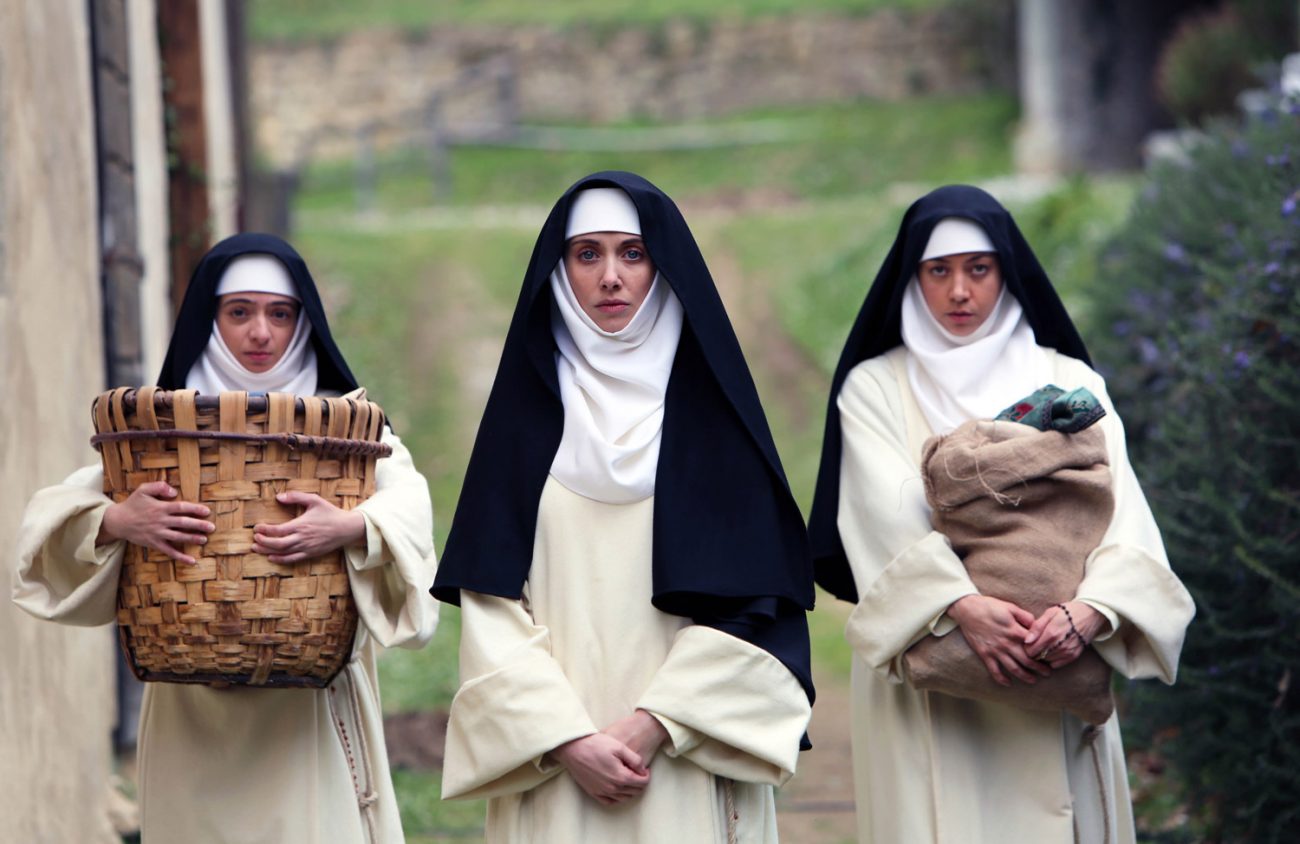Where to begin with The Little Hours, a new comedy written and directed by Jeff Baena and based on Boccaccio’s 1353 masterpiece The Decameron?
The film is desperately unfunny and lacking in all charm, which might be excusable it if were half as outrageous as it thinks it is. But it is entirely a stillborn affair, plagued from the get-go by a smug, indulgent mugging that strives for Monty Python satire and instead, at every step, falls flat on its sorry ass from sheer laziness and the kind of sophomoric self-regard that defines so much of our current popular culture, from The Big Bang Theory to Donald Trump’s tweets.
The Little Hours is not only poorly made but cynically construed and limply executed, a grotesque inside joke meant to amuse its creators at the audience’s expense — a Portlandia skit stretched like millennial taffy for 90 minutes past its expiration date. The only joke is the joke on you.
Too bad, really, because the concept and the cast would seem to promise at least a middling entertainment. Based on a single one of The Decameron’s hundred tales, the film centers on a trio of neophyte nuns in the 14th century — played by Alison Brie, Kate Micucci and Aubrey Plaza — who buck and bristle under the hypocritical tutelage of Father Tommasso (John C. Reilly) and Sister Marea (Molly Shannon).
After the nuns drive out the convent’s elderly caretaker by pelting him with turnips (“What are you fucking looking at!” Plaza screams at the poor guy. “Stop fucking looking at me!”), Reilly — in a moment of drunken penance — brings aboard a handsome young buck (Dave Franco) to replace him, deciding that he should pose as a deaf mute for his own safety. Of course, all sorts of psycho-sexual shenanigans ensue, including but not limited to a ménage a trois and ritual witchcraft.
And then, when Bishop Bartolomeo shows up (a typically preening, meepy Fred Armisen, all wide-eyed bemusement and wimpering), the shit really hits the fan. Women sleeping with women! Blood rites! Blasphemy! Naked nuns! Oh my!
Rich territory, no doubt, which Boccaccio mined with an eye to satirizing the patriarchal oppression of the Catholic Church in the Middle Ages as it came in contact with the burgeoning urbanity of a rising mercantile class. But The Little Hours, with a breed of millennial arrogance that verges on nihilism, treats the story with the kind of eye-rolling disregard that throws the baby out with the bathwater. It is so blithely dismissive of the religious context it tries to parody that every comic thrust becomes an empty gesture delivered in a vacuum.
You don’t have to be a Christian to comprehend the tragedy of, say, The Scarlet Letter. The millennial attitude seems to be, however, that there’s no need to read The Scarlet Letter because we’ve already done away with Christianity. This is a devastating error, dangerous precisely because it believes itself to be a kind of antidote to our present decline, when in fact it may be accelerating it.
What we’re seeing more and more of these days, perfectly exemplified by this movie, is an attitude of disregard that treats tradition and history as a kind of uprooted set piece — a playground for ignorant posturing. The Little Hours thinks it’s being clever and cute, but it’s just being tedious. You’d be better off re-watching Monty Python’s Life of Brian, a religious satire that does not mistake flippancy for intelligence, and is all the more subversive and cutting because of that. (Broadway Metro)
Help keep truly independent
local news alive!
As the year wraps up, we’re reminded — again — that independent local news doesn’t just magically appear. It exists because this community insists on having a watchdog, a megaphone and occasionally a thorn in someone’s side.
Over the past two years, you helped us regroup and get back to doing what we do best: reporting with heart, backbone, and zero corporate nonsense.
If you want to keep Eugene Weekly free and fearless… this is the moment.
